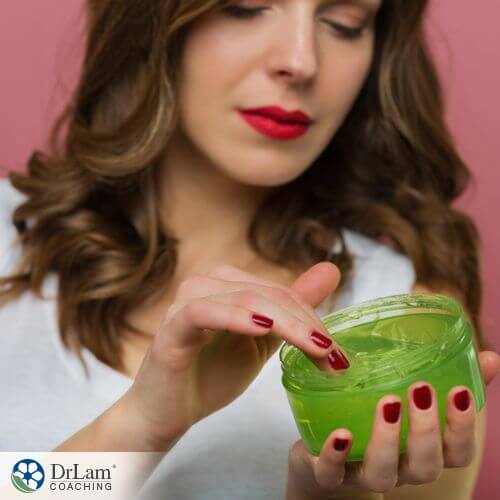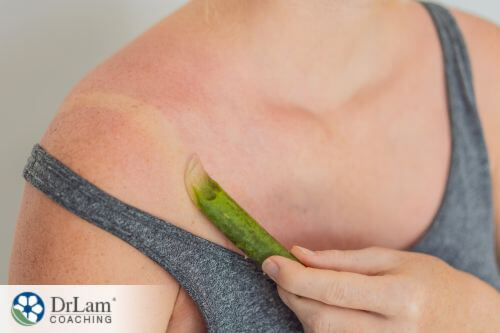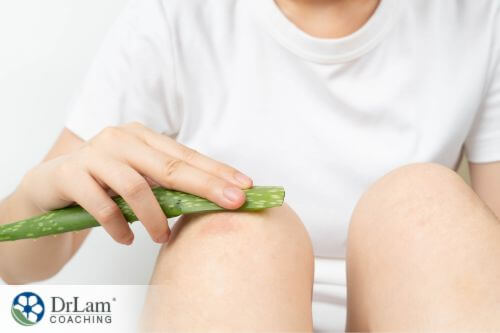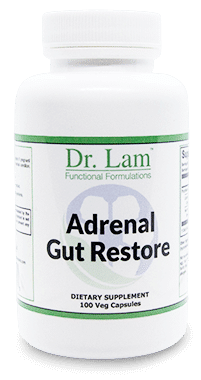 Over-the-counter aloe vera gels that people apply to their skin are derived from aloe vera plants. Yet while these gels tend to contain many additional skin-soothing ingredients, like calendula and echinacea, aloe is also a powerful skin-soother. There are over 400 different species of aloe vera plant, although the most popularly used kind for skin issues is the aloe barbadensis Miller. Aloe vera has long been used for its medicinal properties. Today, more is known about how aloe vera for skin can soothe, moisturize, heal, and protect. It can moisturize, boost wound healing, and more.
Over-the-counter aloe vera gels that people apply to their skin are derived from aloe vera plants. Yet while these gels tend to contain many additional skin-soothing ingredients, like calendula and echinacea, aloe is also a powerful skin-soother. There are over 400 different species of aloe vera plant, although the most popularly used kind for skin issues is the aloe barbadensis Miller. Aloe vera has long been used for its medicinal properties. Today, more is known about how aloe vera for skin can soothe, moisturize, heal, and protect. It can moisturize, boost wound healing, and more.
The aloe vera plant is a herbaceous and perennial plant belonging to the Liliaceae family. Aloe vera is a succulent plant with thick and fleshy leaves that contain a clear gel-like juice. The raw pulp of aloe vera contains roughly 98.5% water, while the remainder consists of various compounds, such as water-soluble and fat-soluble vitamins, enzymes, minerals, organic acids, polysaccharides, and phenolic compounds.
Various active compounds within the gel-like juice in the plant are the reason aloe vera is good for the skin. Some of these include:
Is aloe vera good for your skin? The answer is yes. There are several ways that aloe vera can be good for your skin. Aloe vera for skin issues is not a new use of this plant. Here are several of the ways it is used.
You can use aloe vera gel as a moisturizing gel. Unlike conventional moisturizers, aloe vera gel doesn’t leave a greasy film on the skin. As a moisturizing agent, it works by unclogging your pores and softening your skin. As an aftershave moisturizing cream, aloe vera gel for skin helps to hydrate your skin and keep it that way, as well as healing razor burns and smaller cuts and nicks. Also, you can use aloe vera for dry skin as it will help to soothe cracked or scaly skin. It’s beneficial in this sense since it seals moisture into the skin.
 Using aloe vera for skin issues like sunburn is also beneficial as it can soothe and heal the skin. The cooling and anti-inflammatory properties of aloe vera gel make it a natural remedy for sunburn. By applying the aloe vera gel to your sunburnt skin, you establish a protective layer for the skin that helps to retain moisture. Also, if you have a minor burn, the same aloe vera properties that help with the sunburn can help heal the burn as well. In this instance, you can apply it to the affected area up to three times daily. Furthermore, aloe vera is rich in antioxidants and minerals that enhance healing.
Using aloe vera for skin issues like sunburn is also beneficial as it can soothe and heal the skin. The cooling and anti-inflammatory properties of aloe vera gel make it a natural remedy for sunburn. By applying the aloe vera gel to your sunburnt skin, you establish a protective layer for the skin that helps to retain moisture. Also, if you have a minor burn, the same aloe vera properties that help with the sunburn can help heal the burn as well. In this instance, you can apply it to the affected area up to three times daily. Furthermore, aloe vera is rich in antioxidants and minerals that enhance healing.
Aloe vera gel contains an abundance of vitamins C and E and beta-carotene, and as such, has anti-aging properties. Its soap-like compounds called saponins are effective antiseptic agents. As such, its antiseptic action makes it an excellent natural cleanser for your skin. Also, aloe vera for skin helps to eliminate skin blemishes and minimize fine lines and wrinkles that can make you appear older. Additionally, it also has the potential to boost collagen production in the body and your skin’s elasticity.
Aloe vera boosts wound healing, which makes it significantly beneficial for injuries such as burns, cuts, and scrapes. In so doing, it reduces the healing time by speeding up the process. Its effectiveness in healing may be connected to its ability to greatly speed up skin cell reproduction by as much as eight times and to penetrate the outer layer of the skin (epidermis) much more quickly than water.
According to an article published in the Brazilian Journal of Sciences, aloe vera promotes wound healing by reducing pain, fighting inflammation, moisturizing the wound, triggering fibroblast activation and proliferation, improving collagen composition, and increasing the migration of the wound’s neighboring epithelial cells.
If you are an acne sufferer, aloe vera can help to gently manage acne and acne-related scars. Its antimicrobial properties make it suitable for use on acne pimples without damaging the skin. Also, aloe vera for skin acts as an antiseptic that protects against bacteria, like Cutibacterium, that’s implicated in the development of acne.
Furthermore, aloe vera contains polysaccharides and gibberellins, which help in the growth of new cells, while decreasing inflammation and redness. As an astringent, it minimizes the size of pores, eliminating excess dirt, sebum, and microbes. If you have an inflammatory form of acne, the anti-inflammatory effects of aloe vera gel may help remedy pustules and nodules. You can apply the aloe vera gel with a cotton swab directly to the acne pimple up to three times a day.
You can also use aloe vera to diminish your acne scars, prevent new scars, and improve the appearance of your skin. Aloe vera contains compounds that boost skin cell reproduction, speed healing, and fight and reduce skin inflammation and redness.
For quick relief from pain and burning sensations from small scrapes to your chin, hand, or forehead, apply aloe vera to the affected area. Apply it three times per day for the most effectiveness. The same applies to minor cuts. Aloe vera will fight bacteria, heal the abrasions and cuts quickly, and minimize scarring.
Another aloe vera benefit for the skin is that its anti-inflammatory properties can aid in diminishing dark circles. It helps to reduce puffiness and swelling around the eyes while acting as a gentle moisturizer for the delicate skin around the eyes.
 Aloe vera may help fight the herpes virus (HSV-1) that causes cold sores. According to an article in the journal Viruses, research shows that aloe vera in gel form prevents significant growth of HSV-1 at infection sites minus any toxic side effects. Simply apply a small amount of aloe vera gel to your cold sore twice a day until your skin heals and the sore disappears.
Aloe vera may help fight the herpes virus (HSV-1) that causes cold sores. According to an article in the journal Viruses, research shows that aloe vera in gel form prevents significant growth of HSV-1 at infection sites minus any toxic side effects. Simply apply a small amount of aloe vera gel to your cold sore twice a day until your skin heals and the sore disappears.
As a natural moisturizer, aloe vera can help to alleviate dry, itchy skin related to eczema. It may also help to improve seborrheic dermatitis, an oily form of eczema. It helps eczema by soothing and hydrating the damaged skin, reducing swelling through its anti-inflammatory properties, and preventing infections through its antibacterial and antimicrobial effects.
Also, aloe vera may help alleviate inflammation and itchiness associated with psoriasis as well. You can apply aloe vera gel twice a day to the affected area of the skin until you see results.
Several other ways aloe vera may be helpful include:
According to an article published in the journal Biomedicines, the gut–skin axis is the relationship between the gut microbiome and skin health. This gut-skin axis is regulated by mechanisms that include inflammatory mediators and the immune system. In addition, both the gut and skin have a separate and unique microbial community that interacts with the immune system and the skin. The gut microbiome plays a role in regulating the development of diseases, including skin disorders such as psoriasis. As such, by regulating the gut microbiome, you can reduce skin problems via systemic immune system regulation.
Present in aloe vera are the enzymes lipase and amylase that play a role in effectively metabolizing sugars, starches, and fats, and keeping your gut environment clean, balanced, and working optimally. Furthermore, the aloe vera plant contains acemannan, a polysaccharide that helps to improve gastrointestinal health. Acemannan supports gastrointestinal health by possessing anti-inflammatory properties, stimulating the immune system, promoting wound healing, and potentially acting as a prebiotic to foster a healthy gut microbiome. These actions collectively help improve the integrity and function of the gastrointestinal tract.
If you have adrenal fatigue syndrome (AFS), the non-Addison's form of adrenal dysfunction, where the body's stress response cannot keep up with life's chronic stressors, you may experience extremely dry skin. With weak adrenals, the levels of aldosterone, the hormone responsible for balancing hydration and retaining water in your body, will decrease. Subsequently, you'll experience dehydration and drier skin.
The stress hormone cortisol, produced in response to chronic stress, appears to alter the makeup of the gut microbiome. In so doing, it impacts the skin barrier and skin inflammation. The Inflammatory circuit, comprising the gut, microbiome, and immune system, experiences dysregulation when there is an imbalance in the gut or skin microbiome.
As such, restoring balance to gut flora can reduce inflammation, and strengthen the adrenals. Consequently, it will help to improve your skin's health.
One of the ways that you can improve your gut health is with supplements like Adrenal Gut Restore. With a powerful blend of licorice and aloe to promote gut lining healing, the unique formulation supports gut health and promotes a harmonious digestive environment. Specifically, licorice provides gastrointestinal support because of its anti-inflammatory properties and its ability to support the immune system. In so doing, it helps to repair the lining of the stomach. Aloe vera helps to promote a healthy balance of bacteria in the gut as well. The healing properties of licorice and aloe work synergistically to nourish and restore the gut lining and enhance overall gut wellness.
 There are several ways that you can use aloe vera for your skin. You can apply aloe vera gel from the plant directly to your skin, or it can be added to other products, like face masks, creams, and lotions.
There are several ways that you can use aloe vera for your skin. You can apply aloe vera gel from the plant directly to your skin, or it can be added to other products, like face masks, creams, and lotions.
However, your aloe vera gel must be from a pure source before applying it directly to your skin. If you are using aloe vera for the first time, check for any allergic reaction by testing the aloe vera gel on a small area of your skin.
Additionally, aloe vera is photosensitizing and can lead to rashes under UV ray exposure. As such, you should be careful when using it in the summertime.
Also, never use aloe latex orally, as it may cause cancer and serious kidney complications.
Although aloe vera is a powerful remedy, excessive use can have its downside. For example, if used as a moisturizer in excess, it can cause excessive oil or dryness. If drinking aloe vera juice, limit your intake to 30 mL 3 times a day to minimize the risk of side effects. Furthermore, you must be careful about taking aloe if you have AFS, as it can make you more prone to paradoxical reactions to different substances.
Aloe shouldn't be used by children, and may also interact with some medications. Talk to your doctor first before using aloe vera.
Aloe vera is an effective skincare remedy, although it has other health benefits. It soothes, moisturizes, heals, and protects the skin. It is also good for gut health and supporting a healthy digestive environment. Aloe vera can be a good alternative to conventional medicines that often fail to address the underlying health issue.
Whether you drink aloe vera juice or apply it topically, you are likely to achieve solid results. If you have questions or would like to understand a little more about the gut health or skin health, give Dr. Lam's team a call at +1 (626) 571-1234 for a free initial consultation or click here.

Adrenal Gut Restore promotes gut lining healing and supports gut health and overall wellness.
Massoud, D., et al. “Aloe Vera and Wound Healing: A Brief Review”. Brazilian Journal of Pharmaceutical Sciences, vol. 58, 2022, p. e20837, https://doi.org/10.1590/s2175-97902022e20837
Gopinath, Divya, et al. "A Comprehensive Overview of Epidemiology, Pathogenesis and the Management of Herpes Labialis." Viruses, vol. 15, no. 1, 2023, https://doi.org/10.3390/v15010225.
Yun-Kuan Thye, Angel, et al. "Gut–Skin Axis: Unravelling the Connection between the Gut Microbiome and Psoriasis." Biomedicines, vol. 10, no. 5, 2022, https://doi.org/10.3390/biomedicines10051037.
Aloe for your skin can help to moisturize dry skin, soothe sunburn and burns, heal wounds, fight skin aging, reduce the appearance of dark circles, and kill cold sores, reduce acne and related scars, lighten blemishes, and improve psoriasis and eczema.